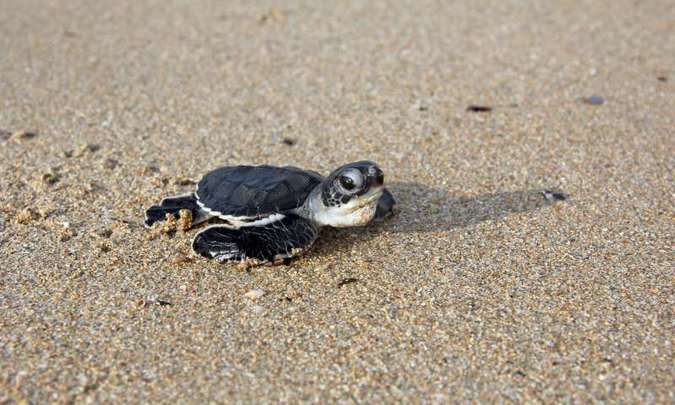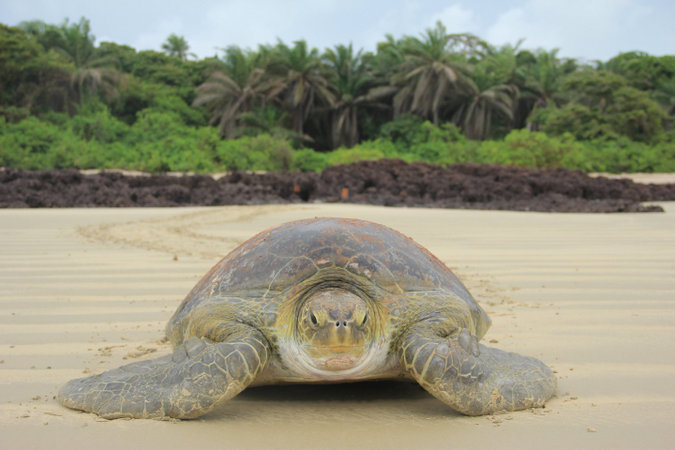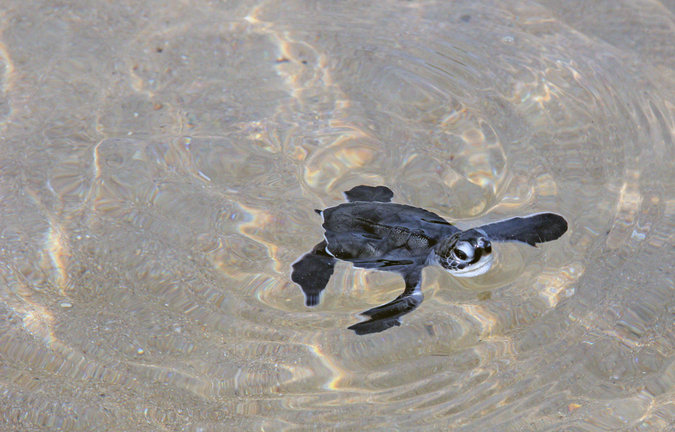
Press release by University of Exeter
Up to 93% of green turtle hatchlings could be female by 2100, as climate change causes “feminisation” of the species, new research suggests.
The sex of turtle hatchlings is determined by temperature, and at present about 52% of hatching green turtles – one of seven species of sea turtle – are female.
But a study by the University of Exeter and the Marine and Environmental Sciences Centre (Portugal) shows that in warmer temperatures predicted by Intergovernmental Panel on Climate Change (IPCC) scenarios, 76-93% of hatchlings would be female.
The figures are specific to the study site in Guinea-Bissau, West Africa, but researchers say they expect a similar picture globally. They say the changing gender ratio would initially lead to more females nesting, increasing the population, before by a decline “as incubation temperatures approach lethal levels”.
They also predict rising sea levels will submerge 33-43% of current nesting areas used by green turtles on the beaches where the study was carried out.

“Green turtles are facing trouble in the future due to loss of habitats and increasing temperatures,” said Dr Rita Patricio, of the Centre for Ecology and Conservation on the University of Exeter’s Penryn Campus in Cornwall.
“Our results suggest the nesting population of green turtles the Bijagós Archipelago, Guinea-Bissau, will cope with the effects of climate change until 2100.
“Cooler temperatures, both at the end of the nesting season and in shaded areas, will guarantee some hatchlings are male.
“Although rising temperatures will lead to more female hatchlings – and 32-64% more nesting females by 2120 – mortality in eggs will also be higher in these warmer conditions.
“As temperatures continue to rise, it may become impossible for unhatched turtles to survive.”

The research team, which included the Institute of Biodiversity and Protected Areas of Guinea-Bissau, say nesting sites submerged by rising seas may not simply “move” inland.
“Beach retreat may be okay in some areas, but the turtles we studied were nesting on a small island (Poilão Island) so there is a limit to how far the beach can go,” Dr Patricio said.
“In other places, there may be natural barriers or human constructions that stop beaches moving inland.”
The Bijagós Archipelago is the most important nesting place for green turtles in Africa, and the main breeding ground for the species in the South Atlantic.
The research was funded by the MAVA Foundation.
Full report: Ana R. Patrício, Miguel R. Varela, et al (2018). Climate change resilience of a globally important sea turtle nesting population. Global Change Biology. https://doi.org/10.1111/gcb.14520
To comment on this story: Login (or sign up) to our app here - it's a troll-free safe place 🙂.![]()






